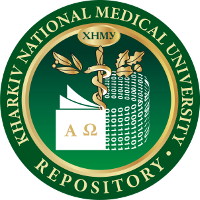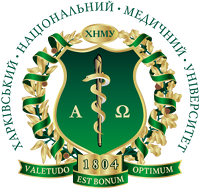Please use this identifier to cite or link to this item:
http://repo.knmu.edu.ua/handle/123456789/9261Full metadata record
| DC Field | Value | Language |
|---|---|---|
| dc.contributor.author | Kompaniiets, Kira | - |
| dc.contributor.author | Eyo, Edidion | - |
| dc.date.accessioned | 2015-06-03T08:57:26Z | - |
| dc.date.available | 2015-06-03T08:57:26Z | - |
| dc.date.issued | 2015-03-31 | - |
| dc.identifier.citation | Eyo E. The fundamentals of neuroethics in clinical practices neuroethics in real view / E. Eyo, K. Kompaniiets // Implementation of bioethics principles in clinical practice : IV International Scientific student's conference dedicated to the 210th anniversary of Kharkiv National Mеdical University, Kharkiv, 31th of March 2015 : abstract book. – Kharkiv, 2015. – P. 25. | uk_UA |
| dc.identifier.uri | https://repo.knmu.edu.ua/handle/123456789/9261 | - |
| dc.description.abstract | Edidiong Eyo, Kira Kомpaniiets The fundamentals of neuroethics in clinical practices. Neuroethics in real view Neuroethics as a new and important field, it ought not be merely a subdivision of bioethics, with issues and answers parallel to those that arise in other areas of biomedical research.The intimate connection between our brains and our behaviors, as well as the peculiar relationship between our brains and our selves, generate distinctive questions that interplay between ethical and neuroscientific thinking. The motivation for the new found interest in bringing together neuroscientists, ethicists, journalists, philosophers, and policy makers arises from the intuition that our ever-increasing understanding of the brain mechanisms underlying diverse behaviors has unique and potentially dramatic implications for our perspective on ethics and for social justice. These are the issues that warrant the introduction of a new area of intellectual and social discourse.Neuroethics In Stem Cell therapy. Most of the issues concerning uses of stem cells in the brain are the same as any of the bioethical or purely ethical questions you will find regarding the use and research of stem cells. The field of stem cell research is a very new field which poses many ethical questions concerning the allocation of stem cells as well as their possible uses. Since most stem cell research is still in its preliminary phase most of the neuroethical issues surrounding stem cells are the same as stem cell ethics in general.More specifically the way that stem cell research has been involved in neuroscience is through the treatment of neurodegenerative diseases and brain tumors. In these cases scientists are using neural stem cells to regenerate tissue and to be used as carriers for gene therapy. In general, neuroethics revolves around a cost benefit approach to find techniques and technologies that are most beneficial to patients. There has been progress in certain fields that have been shown to be beneficial when using stem cells to treat certain neurodegenerative diseases such as Parkinson's diseaseStem cells are used to treat degenerative diseases. One form of a degenerative disease that can occur in the brain as well as throughout the body is an autoimmune disease. Autoimmune diseases cause the body to "attack" its own cells and therefore destroys those cells as well as whatever functional purpose those cells have or contribute to. One form of an autoimmune disease that affects the central nervous system is Multiple Sclerosis.In this disease the body attacks the glial cells that form myelin coats around the axons on neurons. This causes the nervous system to essentially "short circuit" and pass information very slowly. Stem cells therapy has been used to try to cure some of the damage caused by the body in MS. | uk_UA |
| dc.language.iso | en | uk_UA |
| dc.subject | clinical practic | uk_UA |
| dc.subject | neuroethics | uk_UA |
| dc.title | The fundamentals of neuroethics in clinical practices. Neuroethics in real view | uk_UA |
| dc.type | Thesis | uk_UA |
| Appears in Collections: | Наукові роботи молодих вчених. Кафедра пропедевтики внутрішньої медицини № 1, основ біоетики та біобезпеки | |
Files in This Item:
| File | Description | Size | Format | |
|---|---|---|---|---|
| тезисы компаниец).docx | 15,66 kB | Microsoft Word XML | View/Open |
Items in DSpace are protected by copyright, with all rights reserved, unless otherwise indicated.

